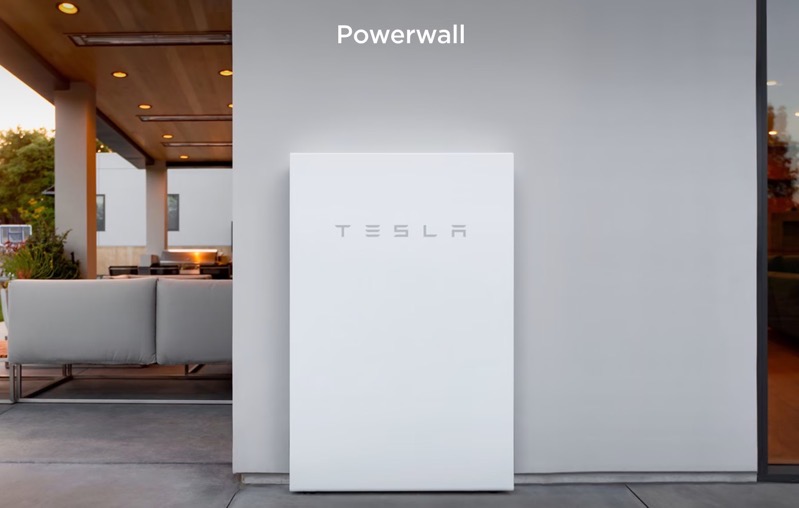Tesla’s Powerwall Continues to Gain Popularity with Over 4,000 Installations in Australia in July
Tesla’s home battery product, the Powerwall, is experiencing a surge in demand, with over 4,000 installations in Australia during the month of July alone. This brings the total number of Powerwalls in use globally to over 810,000. The company shared this impressive statistic on social media, highlighting how these installations are helping homeowners become less reliant on the grid and save on energy costs.
The Powerwall is a rechargeable home battery that is designed to store excess energy from solar panels or draw power from the grid during off-peak, lower-cost hours. This stored energy can then be utilized when needed most, whether it’s during a power outage, at night, or during peak electricity rate times. In addition to powering essential devices like lights, Wi-Fi, and refrigerators, the Powerwall can also support larger appliances such as air conditioners and heaters without any disruption.
One of the key features of the Powerwall is its intelligent energy management system, which helps users save money by automatically switching to stored power during periods of higher electricity costs. In certain regions, homeowners can even sell excess stored energy back to the grid. In fact, Tesla paid out nearly $10 million to Powerwall owners in the U.S. in 2024 through its Virtual Power Plant (VPP) program for assisting in stabilizing the grid during high-demand periods.
To meet the increasing demand for its products, Tesla has been ramping up production at its Nevada facility. The company has been producing 1,000 Powerwalls daily since late last year and even achieved a record of 1,500 units in a single day this past February. Meanwhile, the Powerwall’s larger counterpart, the Megapack, continues to dominate the commercial energy storage sector globally, with recent news of securing a massive $2.7 billion order from Georgia Power.
The latest figures from Australia underscore the growing trend towards home energy independence, as more households are turning to Tesla’s Powerwall to reduce costs and lessen their reliance on traditional electricity grids. With its innovative technology and sustainability benefits, the Powerwall is playing a significant role in reshaping the way we think about residential energy storage solutions. The world of technology is constantly evolving, with new innovations and advancements being made every day. One such advancement that has taken the tech world by storm is the development of artificial intelligence (AI). AI refers to the simulation of human intelligence in machines that are programmed to think and learn like humans.
AI has a wide range of applications, from self-driving cars to personalized shopping recommendations. One area where AI is making a significant impact is in the healthcare industry. Healthcare providers are increasingly turning to AI to improve patient care, streamline operations, and reduce costs.
One of the key benefits of using AI in healthcare is its ability to analyze large amounts of data quickly and accurately. This can be especially useful in diagnosing diseases and predicting patient outcomes. AI algorithms can sift through vast amounts of patient data, including medical records, lab results, and imaging studies, to identify patterns and trends that may not be apparent to human doctors. This can lead to earlier and more accurate diagnoses, ultimately improving patient outcomes.
AI can also be used to personalize treatment plans for patients. By analyzing data from electronic health records, genetic testing, and other sources, AI can help healthcare providers tailor treatment plans to each patient’s unique needs and characteristics. This can lead to more effective and efficient care, as well as better patient outcomes.
In addition to improving patient care, AI can also help healthcare providers streamline operations and reduce costs. For example, AI-powered chatbots can handle routine administrative tasks, such as scheduling appointments and answering basic patient questions, freeing up human staff to focus on more complex and critical tasks. AI can also help hospitals and clinics optimize their workflows, leading to more efficient use of resources and improved patient satisfaction.
Despite the many benefits of AI in healthcare, there are also challenges and concerns that must be addressed. One of the main concerns is the potential for bias in AI algorithms. If the data used to train AI systems is biased, the algorithms themselves may be biased, leading to incorrect or unfair decisions. Healthcare providers must be vigilant in ensuring that their AI systems are trained on diverse and representative data sets to avoid bias.
Another challenge is the need for clear guidelines and regulations around the use of AI in healthcare. As AI technology continues to advance, it is important for policymakers and regulators to establish standards for the ethical use of AI in healthcare, including issues such as patient privacy, data security, and transparency.
Overall, AI has the potential to revolutionize healthcare by improving patient care, streamlining operations, and reducing costs. By harnessing the power of AI, healthcare providers can deliver more personalized and efficient care to patients, ultimately leading to better health outcomes for all.

